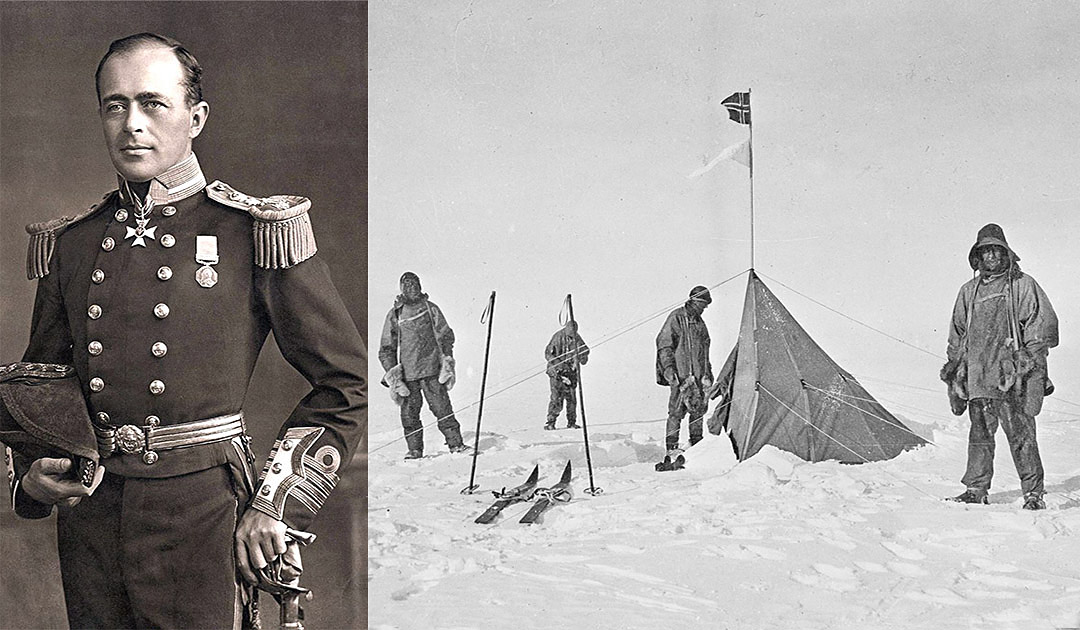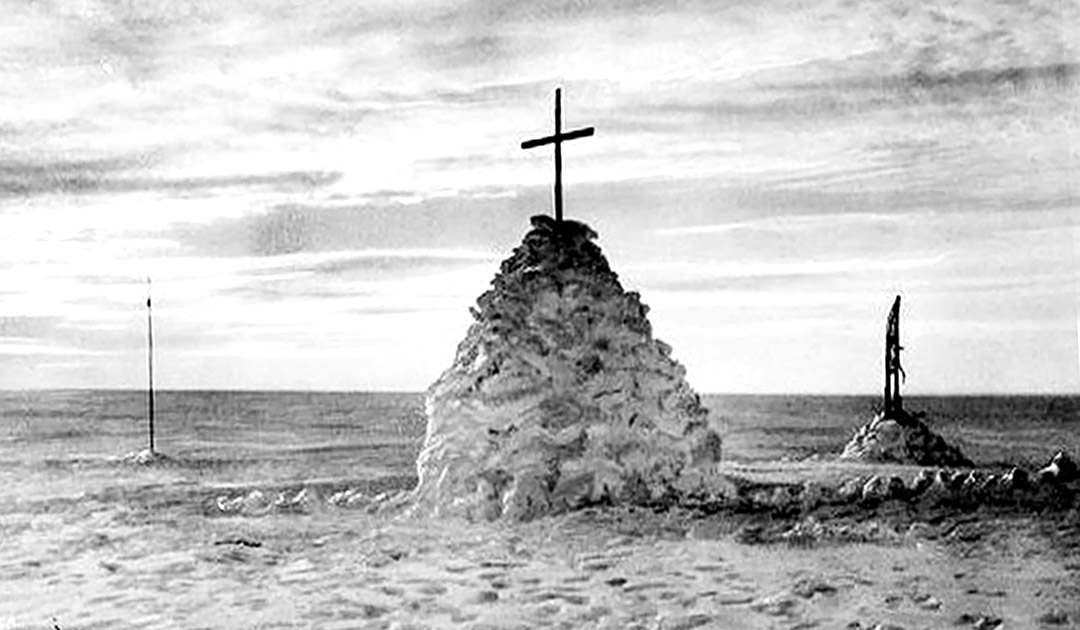
History loves winners. Only they are remembered, even the second one tends to be forgotten. (Sample: Does the name of the second astronaut on the moon catch your mind? – See?) I would like to remember one of my favourite losers here, because in my view he is a moral winner.

Britain’s Robert Falcon Scott. In the collective memory, this is the man who was beaten by the Norwegian Roald Amundsen during the race to the South Pole. The winner achieved the previously impossible thanks to his cool pragmatism and precise arithmetic. The romantic in me, however, for all the recognition of this achievement, is reluctant to forget that Amundsen made a meticulous plan for the way to the pole and back, calculating how many of the sled dogs had to be slaughtered and fed to their four-legged companions.

The bookworm, animal lover and gentleman Scott is much closer to my romantic heart. The Base Camp at Cape Evans, where Scott and his 24 companions spent the winter of 1911, must have been a very cultivated place: Caruso sang arias from a gramophone, people were reading contemporary Russian novels, Tennyson’s poems and the complete edition of the Encyclopedia Britannica. Throughout the winter, the men gave each other lectures on uplifting topics such as Japanese printmaking, Napoleon’s campaigns, and parasite infestation in fish. As if they were in a cosy club in London’s West End, not in a lightless polar night at the end of the world. When they set out in spring to become the first people to reach the South Pole to the glory of the king and fatherland, they pulled their sleighs themselves for long distances. On their way back (they had learned that Amundsen had reached the finish line before them), Scott and his two remaining companions carried 23 kilos of rock with them, and all sorts of finds that were intended for the scientists at home in their study rooms. This excess baggage was found months later with the three frozen bodies. So did Scott’s farewell letters to his fatherland and his wife. His last diary entry and thoughts were addressed to her: “Send my diary to my wife” and “Look after our people.”
Edward Wilson – Member of the “Loser Troop”

Another wonderful example of heroism and stylish failure is offered by Edward Wilson, one of Scott’s companions on his first Antarctic expedition. Wilson got up at five o’clock every morning on a dark winter night to feed an orphaned emperor penguin chick he had found on the edge of the Great Ice Barrier. His love of animals even went so far that he chewed his morning ration of seal meat to the little bird, as his feathered parents would have done.
Sir John Franklin – Loser in Extremis

And Sir John Franklin, a former compatriot of Scott: he left his life on the adventurous trip in the Arctic. But he died as he lived: as a perfect gentleman. He and his 129 companions fell ill or died of scurvy and hunger. This is less heroic than astonishing, since the land in the Canadian Arctic, with its rich fish and game population, has been feeding large numbers of Inuit since time immemorial. But even more astonishing is the luggage of the brave conquerors, which was later found at the corpses. The men had left their rifles on board and, instead of vital weapons and equipment, had carried along things that, at best, members of the British country nobility needed for a summer picnic in the countryside: silver cutlery with monogram, a box of cigars, a classy backgammon game, a clothes brush, a box of button polish and a weighty church standard work. May Scott and the other losers have also lost the race to the pole – they have won the hearts of all romantics and women.
Greta Paulsdottir






Thank you for an interesting article.
It was a great Romantic tradition of the British to love ‘Heroes who had given everything but ultimately failed’ – Shackleton, Scott, Franklin … the list goes on.
There were many British heroes who did achieve great Polar feats but never got the respect and honour they deserved, particularly the Scot, William Bruce Spiers.
Hi Brian, your wish is our command:
https://polarjournal.ch/en/2019/12/16/william-spiers-bruce/
We had the article in German, thanks to you, it’s now available in English. Enjoy 🙂
Kind Regards Michael